Today, more than ever, if there is something that the SEAT Leon are different types of engines (perhaps one of the reasons for its election as Car of the Year 2021 in Portugal). From gasoline to diesel engines, to CNG or plug-in hybrids, there seems to be an engine to suit each one.
The Leon TDI that we are testing here, formerly the most economical option within the range, now has the “internal competition” of the plug-in hybrid variant.
Despite having a (slightly) lower price — 36,995 euros in this FR version compared to 37,837 euros requested for the plug-in hybrid variant on the same level of equipment — it has against it the fact that it has 54 hp less.
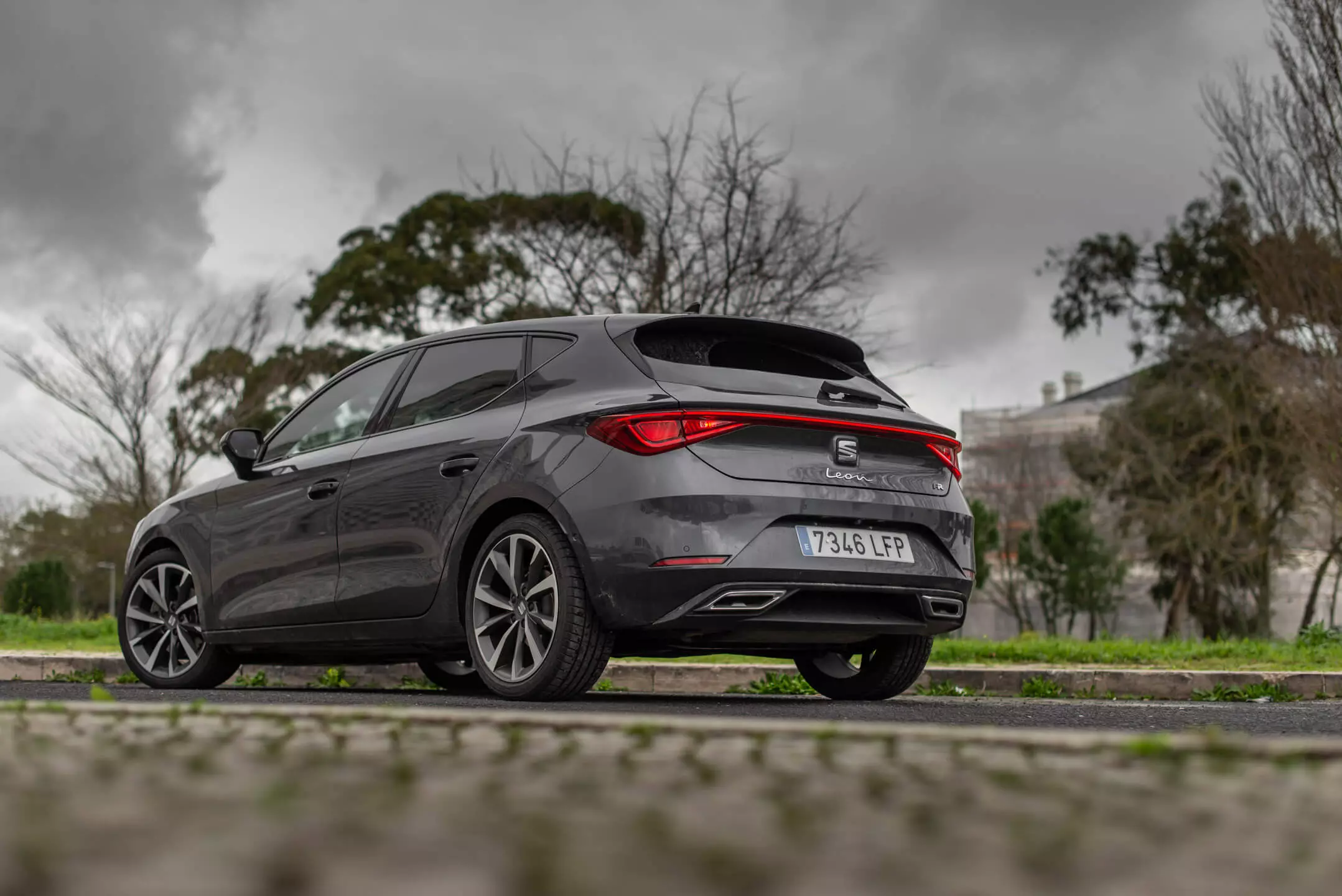
Well, even in this more powerful version, the 2.0 TDI is “only” by 150 hp and 360 Nm. The 1.4 e-Hybrid, on the other hand, offers 204 hp of maximum combined power and 350 Nm of torque. All this anticipates a difficult life to justify the proposal with a diesel engine.
Diesel? What do I want it for?
Currently "in the crosshairs" of lawmakers and environmentalists, diesel engines have in this 2.0 TDI of 150 hp and 360 Nm a good example of why they have been so successful.
Aided by a well-scaled and fast seven-speed DSG (double clutch) gearbox, this engine proves to be quite pleasant to use, being linear in power delivery and even appearing to have more power than advertised.
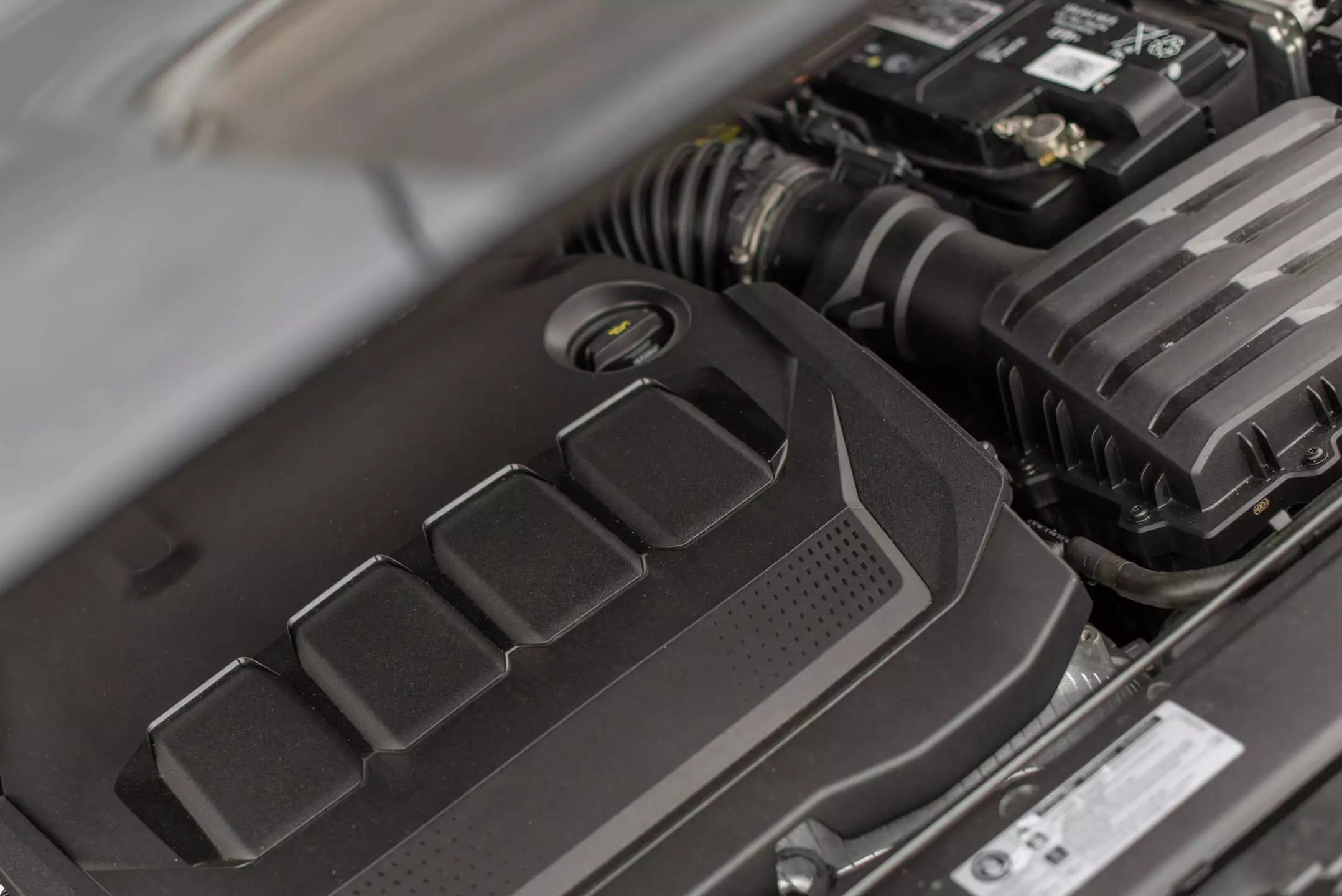
This is probably due to the fact that the maximum power is available “up there” between 3000 and 4200 rpm, but the 360 Nm of torque appears as early as 1600 rpm and remains so until 2750 rpm.
Subscribe to our newsletter
The end result is an engine that allows us to overtake without “befriending” the driver of the car next door (recoveries are fast) and, above all, there doesn't seem to be a special difference to the plug-in hybrid version I tested recently (except for the immediate delivery of binary, of course).
If it's true that the hybridized variant has more than 54 hp, we mustn't forget that it also weighs 1614 kg against the friendlier 1448 kg of the Diesel.
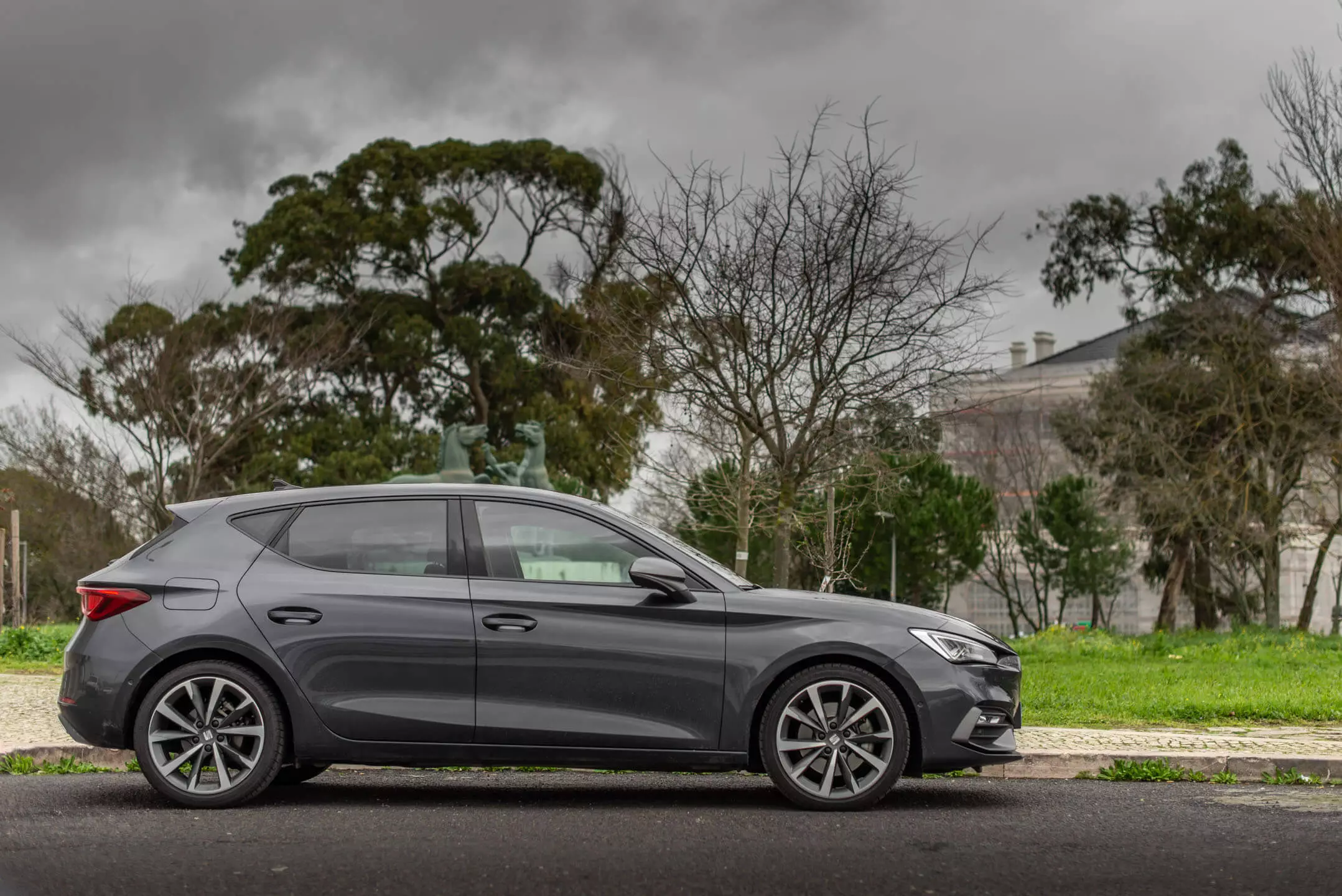
Finally, also in the field of consumption, the 150 hp 2.0 TDI has its say. Take it to the natural habitat of these engines (the national roads and the highways) and you'll have no difficulty getting an average of 4.5 to 5 l/100 km in a carefree drive.
In fact, without much effort and complying with the speed limits, I managed, on a route mostly done in the Ribatejo marshlands, an average consumption of 3.8 l/100 km. Does the plug-in hybrid do the same? It even has the potential to do better — especially in an urban context — but for that we have to carry it while the Diesel does this without requiring us to change our habits.
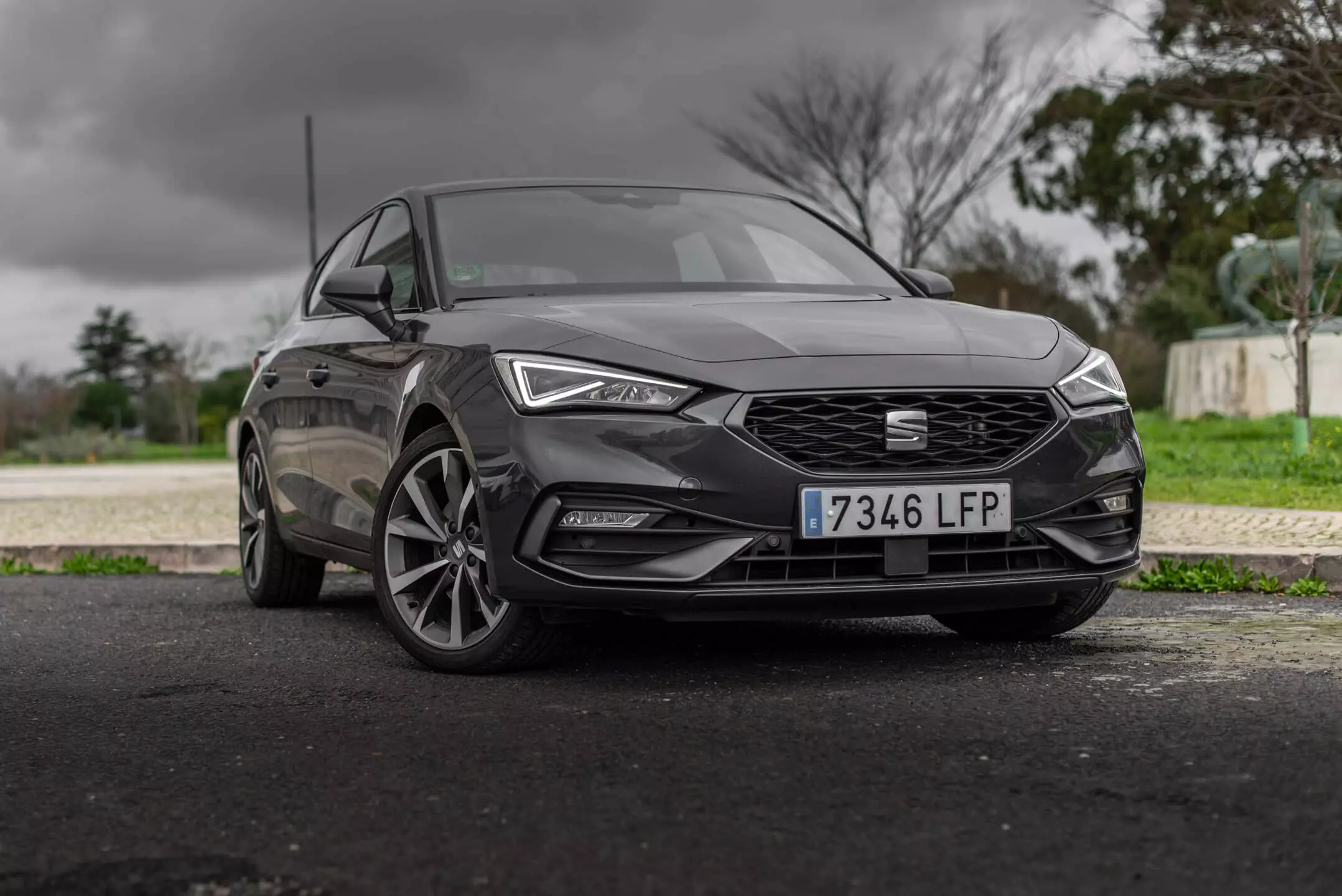
Finally, a note on dynamic behavior. Always rigorous, predictable and effective, in this FR version the Leon becomes even more focused on cornering performance, all without sacrificing a level of comfort that makes it a good choice for long journeys.
And more?
As I mentioned when testing the plug-in hybrid version of the Leon, the evolution compared to its predecessor is evident. From the outside, dynamic, but without being exaggerated and thanks to elements such as the light strip that crosses the rear, the Leon does not go unnoticed and deserves, in my opinion, a “positive note” in this chapter.
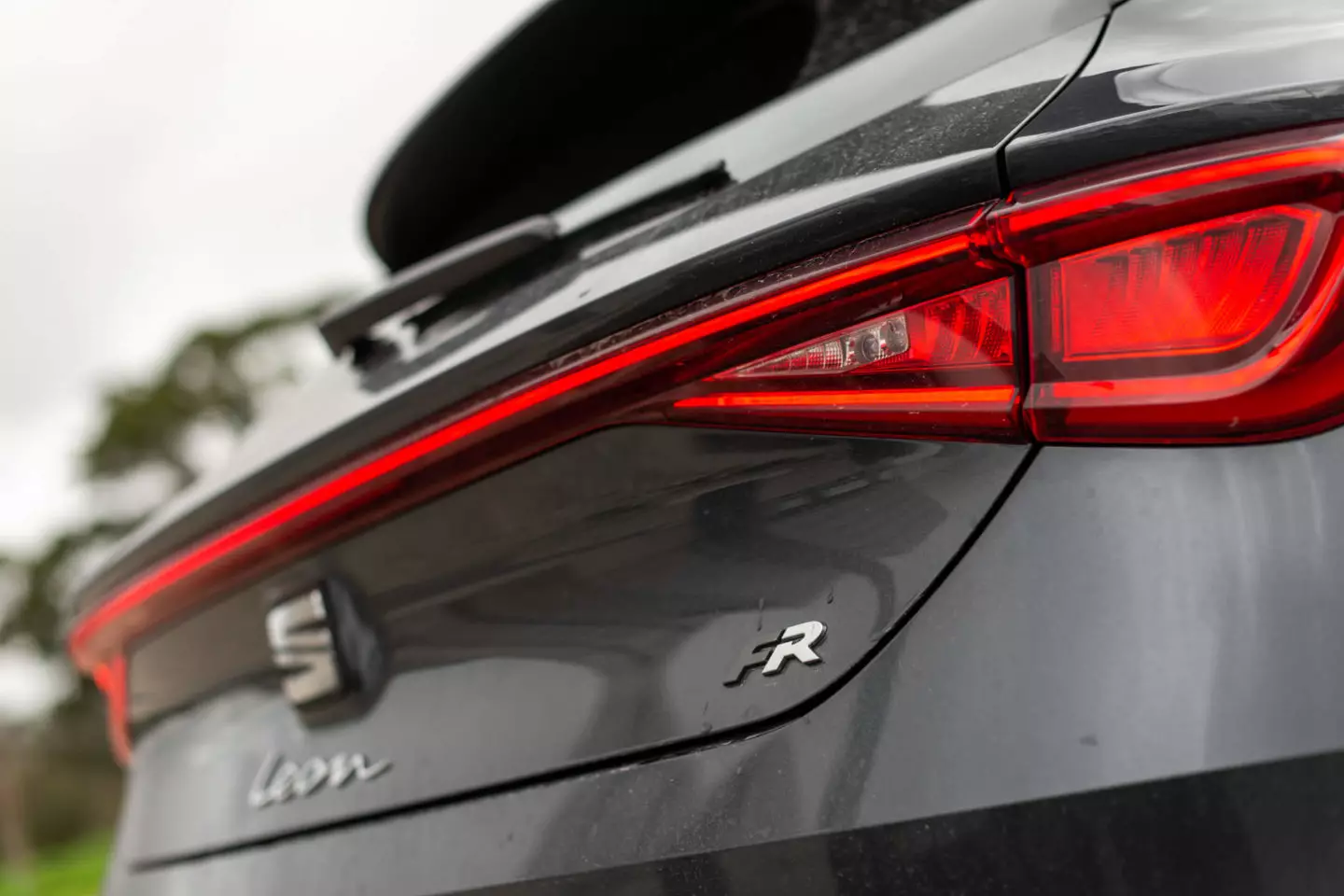
Inside, the modernity is evident (although at the expense of some ergonomic details and ease of use), as well as the robustness, proven not only by the absence of parasitic noises but also by the materials that are pleasant to the touch and to the eye.
As for space, the MQB platform does not leave its “credits in the hands of others” and allows the Leon to enjoy good levels of habitability and the luggage compartment with 380 liters is part of the average for the segment. In this regard, the Leon TDI benefits from the Leon e-Hybrid, which, due to the need to “tidy up” the batteries, sees its capacity drop to a more limited 270 liters.
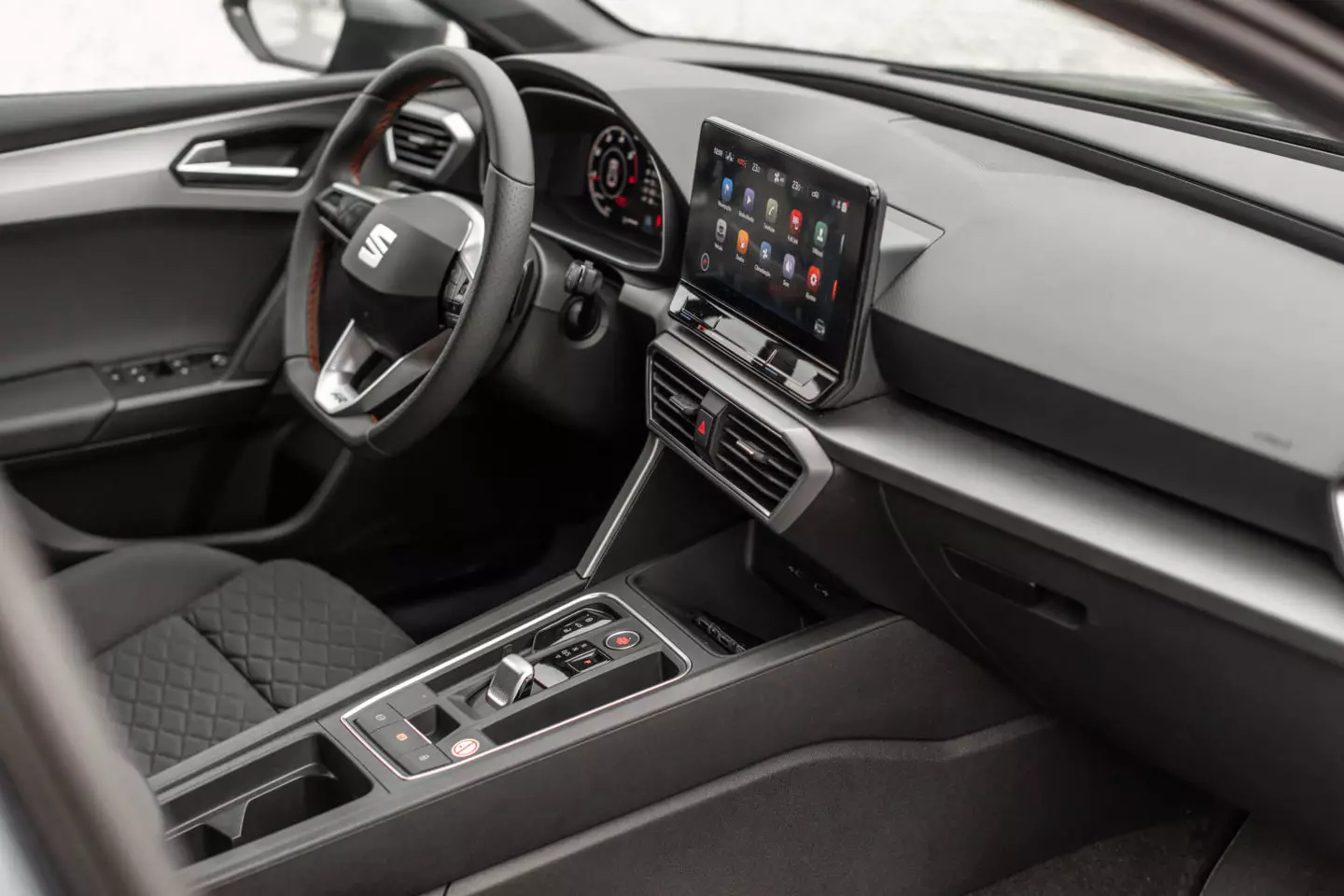
Aesthetically appealing, the Leon's interior lacks the almost total lack of physical controls, which forces us to rely heavily on the central screen.
Is the car right for me?
This answer depends (a lot) on the intended use of the SEAT Leon. For those, like me, who travel mostly long stretches of highway and national road, this Leon TDI is, most likely, the ideal choice.
It doesn't ask us to charge it to achieve low consumption, it provides good performance and consumes a fuel that is, for the time being, more affordable.
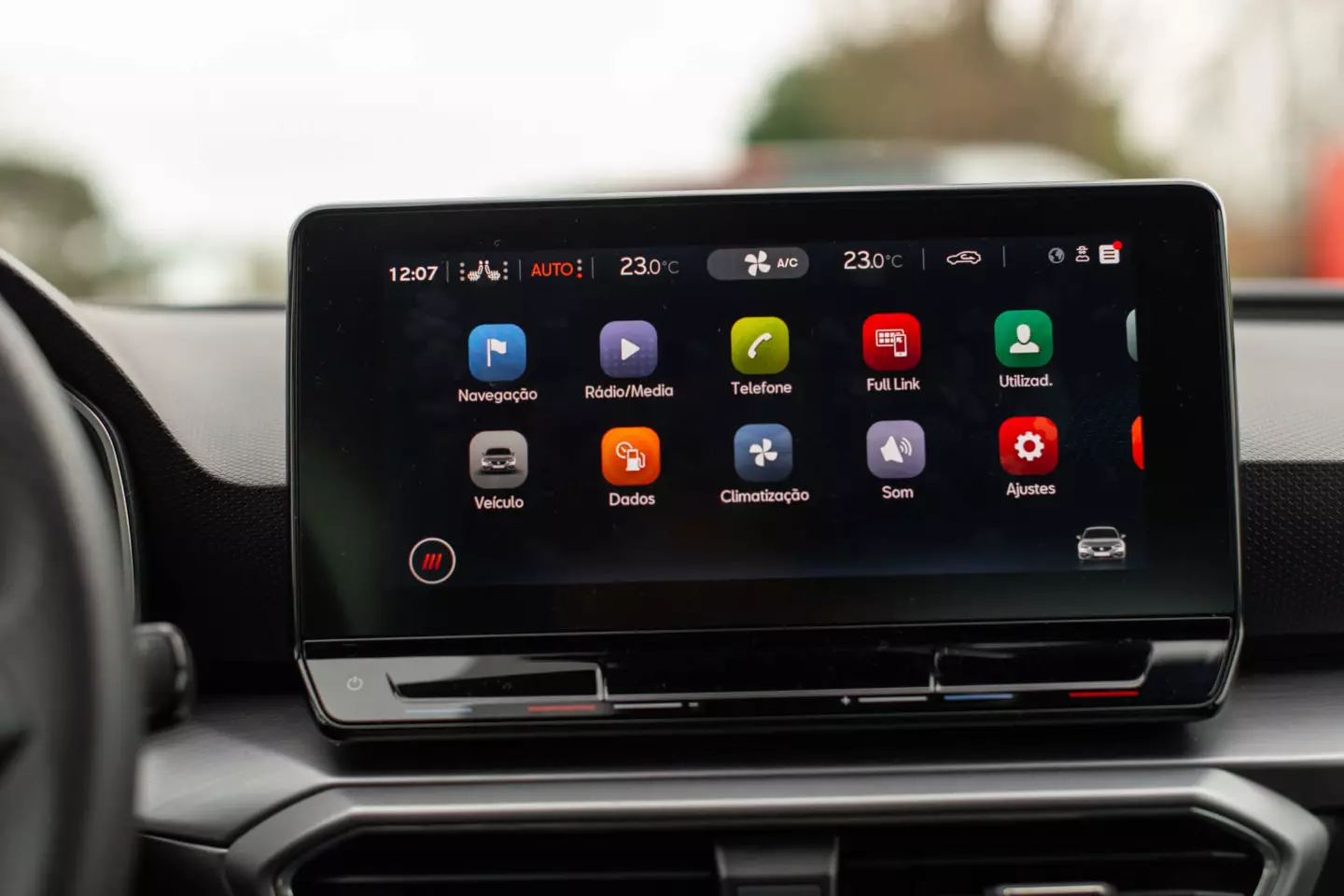
In addition to having an up-to-date graphics, the infotainment system is fast and quite complete.
For those who see a considerable part of their journeys unfold in an urban environment, then Diesel may not make special sense. In the city, despite being economical (averages didn't go far from 6.5 l/100 km), this Leon TDI FR doesn't achieve what the plug-in hybrid Leon allow: circulate in 100% electric mode and without spending a drop of fuel.
Finally, it is important to note that Leon TDI revisions appear every 30,000 kilometers or 2 years (whichever comes first) and the plug-in hybrid variant is made every 15,000 kilometers or annually (again, that if fulfilled first).
